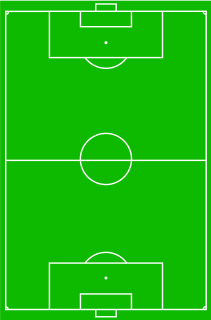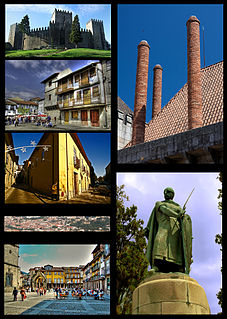| Personal information | |||
|---|---|---|---|
| Full name | Francisco Ferreira | ||
| Date of birth | 23 August 1919 | ||
| Place of birth | Guimarães, Portugal | ||
| Date of death | 14 February 1986 (aged 66) | ||
| Place of death | Lisbon, Portugal | ||
| Playing position | Midfielder | ||
| Youth career | |||
| 1936–1937 | Porto | ||
| Senior career* | |||
| Years | Team | Apps | (Gls) |
| 1937–1938 | Porto | 13 | (0) |
| 1938–1952 | Benfica | 265 | (23) |
| Total | 278 | (23) | |
| National team | |||
| 1940–1951 | Portugal | 25 | (0) |
| * Senior club appearances and goals counted for the domestic league only | |||
Francisco "Xico" Ferreira (23 August 1919 – 14 February 1986) was a Portuguese footballer who played as a midfielder.

Association football, more commonly known as football or soccer, is a team sport played with a spherical ball between two teams of eleven players. It is played by 250 million players in over 200 countries and dependencies, making it the world's most popular sport. The game is played on a rectangular field called a pitch with a goal at each end. The object of the game is to score by moving the ball beyond the goal line into the opposing goal.

A midfielder is an association football position. Midfielders are generally positioned on the field between their team's defenders and forwards. Some midfielders play a disciplined defensive role, breaking up attacks, and are otherwise known as defensive midfielders. Others blur the boundaries, being more mobile and efficient in passing: they are commonly referred to as deep-lying midfielders, play-makers, box-to-box, or holding midfielders. The number of midfielders on a team and their assigned roles depends on the team's formation; the collective group of these players on the field is sometimes referred to as the midfield.
Contents
Over the course of 15 seasons, he amassed Primeira Liga totals of 278 games and twenty-three goals, mainly at Benfica, winning ten major titles.

The Primeira Liga, also known as Liga NOS for sponsorship reasons, is the top professional association football division of the Portuguese football league system. It is organised and supervised by the Liga Portuguesa de Futebol Profissional. As of the 2014–15 season, the Primeira Liga is contested by 18 teams, with the two lowest placed teams relegated to the Segunda Liga and replaced by the top-two non-reserve teams from this division (except in the 2018–19 season in which the three lowest placed teams are relegated to the Segunda Liga due to the integration in the Primeira Liga of Gil Vicente in the next season. However, the Portuguese Football Federation appealed to proceed with this integration as soon as possible.

Sport Lisboa e BenficaComC MHIH OM, commonly known as Benfica, is a sports club based in Lisbon, Portugal. It is best known for the professional football team playing in the Primeira Liga, the top flight of the Portuguese football league system, where they are the most successful club in terms of titles won.
He is also notable for ill-fated reasons, after a friendly in his honor between Benfica and Torino, as the Italian team returned home, their plane crashed into the Basilica of Superga, killing all aboard and ending the Grande Torino team.

The Basilica of Superga is a church in the vicinity of Turin.

The Grande Torino was the historic Italian football team of Torino Football Club in the 1940s, five-time champions of Italy, whose players were the backbone of the Italy national team and died on 4 May 1949 in the plane crash known as the Superga air disaster. The Filadelfia Stadium was built by Enrico Marone Cinzano, the grandfather of Carlo Rivetti.




